Tokyo: Japan's Prime Minister Shinzo Abe announced Friday he will resign over health problems, in a bombshell development that kicks off a leadership contest in the world's third-largest economy.
"I have decided to step down from the post of the prime minister," he told a press conference, saying he was suffering from a recurrence of the ulcerative colitis that ended his first term in office.
ALSO SEE
The unexpected news sent Tokyo stocks plunging more than two percent, with the benchmark Nikkei 225 index reversing earlier gains.
Rumours about Abe's possible resignation had intensified after two recent surprise hospital visits for unspecified medical checks, but in recent days, senior government officials had suggested he would serve out the rest of remaining year in office.
The resignation would be a bitterly familiar scenario for Abe, who stepped down just one year into his first term, in 2007, over health problems.
He was subsequently diagnosed with ulcerative colitis, which he said upon return to office in 2012 was under control with the help of new medication.
A report card of Abe's Abenomics
Major monetary easing
On his return to power after a disastrous first term between 2006-2007, Abe cut a deal with the Bank of Japan that saw the central bank implement a policy of unprecedented monetary easing.
The goal was to reduce the cost of borrowing, stimulating business activity and personal consumption, and pushing inflation up to a two percent target to end the deflation that had haunted the Japanese economy since the 1990s.
The BoJ's policy helped strengthen the competitiveness of Japanese exporters by weakening the yen, but the inflation target has remained stubbornly out of reach.
The Japanese economy has gradually recovered and prices have slowly increased, but are still far short of expectations.
The country even experienced deflation between 2015 and 2016, which made an unwelcome return this year with the global economic crisis caused by the coronavirus.
Government spending galore
The BoJ's efforts were paired with stimulus in the form of massive government spending, the second of the "three arrows" of Abenomics.
Hundreds of billion of dollars was spent from 2013, particularly for the modernisation of infrastructure nationwide, some of it with an eye on the Tokyo 2020 Olympic Games.
The spending boosted revenue and investments for business, stimulated financial and real estate markets and helped support the country's growth for several years.
But it didn't stop the national economy from derailing several times: GDP contracted between 2014-2015 before recovering, and the country fell into recession again in 2020, even before the coronavirus crisis hit.
With an ageing population more inclined to save than spend, consumption has remained stubbornly low. And spending was hit further by two consumption tax hikes, in 2014 and 2019.
Economists warned both times that the increases would send the economy into reverse, but the government pushed ahead, spurred by its burgeoning obligations in a country with the world's highest debt-to-GDP ratio.
With the coronavirus causing economic devastation, and domestically forcing the postponement of the Olympics and a nosedive in tourist revenue, the government has unleashed massive new stimulus.
But Japan's growth potential is dropping because "the government lacks a green recovery vision and digital initiatives," said Sayuri Shirai, a professor in Keio University's faculty of policy management and former BoJ policy board member.
Structural reforms
The first two arrows of Abenomics could not work without the third pledged by the premier: structural reforms.
A chief target was Japan's labour market, characterised by a post-war boom era model in which workers could expect life-long employment and extensive benefits in jobs at one of the country's behemoth firms.
But attempts to overturn the calcified model and promote greater flexibility have moved too slowly, experts say.
"At first we thought the government was buying time by monetary easing and fiscal policy, to prepare for structural reforms which are painful," said Masamichi Adachi, an economist with UBS.
"However this time was not used wisely for structural reforms," he told AFP.
There have been some bright spots, including a rising number of women and older people in the workplace, and some loosening of the country's strict immigration policy, which may help tackle chronic labour shortages.
But many of the reforms "have been not bold enough" to boost labour productivity," Shirai said.
The pandemic, she added, revealed "not only Japan's corporate sector vulnerability but also inadequate electronic public services" and the slow implementation of government policies.
Who could lead Japan after Abe?
Taro Aso, gaffe-prone finance minister
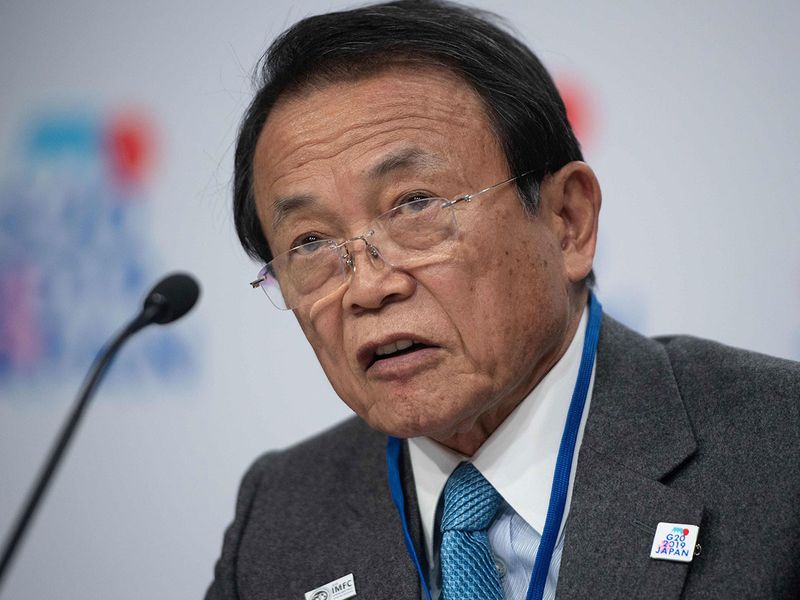
In his dual role as finance minister and deputy prime minister, 79-year-old Taro Aso is a Liberal Democratic Party old-timer.
A close Abe ally, Aso was prime minister from 2008-09 and has been deputy prime minister and finance minister since 2012.
Aso stepped down as premier after his ruling LDP was booted from office in a historic defeat in 2009, and has long been rumoured to nurse hopes of another chance at the top office.
His long political career has been punctuated by repeated gaffes, including comments that the elderly should "hurry up and die" instead of costing the government money, and that Tokyo could learn from Nazi Germany when it comes to constitutional reform.
But he has weathered the multiple furores over his comments, and leads a major faction in the LDP.
He backed a massive stimulus programme in the face of the 2008 global financial crisis, but later shifted to stressing the importance of reducing the country's snowballing debt.
Shigeru Ishiba, popular ex-defence minister
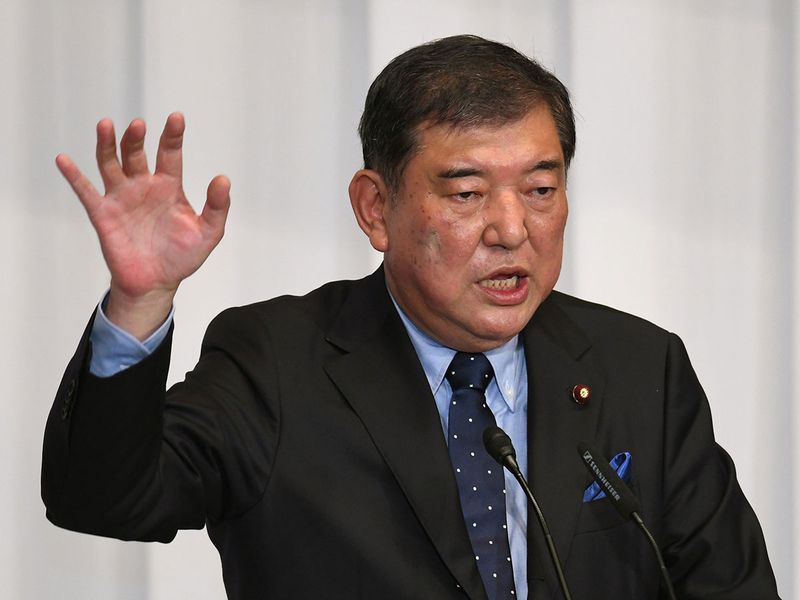
Former defence minister Shigeru Ishiba is considered a military geek but is also a self-confessed fan of 1970s pop music.
The 63-year-old former banker is the scion of a political family and seen as a strong orator with significant experience - he entered parliament at just 29.
Like Abe, Ishiba is a defence hawk who wants to strengthen the role of the country's Self-Defense Forces in the pacifist constitution, and he has even mused about whether Japan should reconsider its policy forbidding nuclear weapons on its soil.
He has served in several cabinet posts and is a popular choice to succeed Abe among the public.
Ishiba is less favoured by his fellow ruling party lawmakers, partly because he once left the LDP.
He was the sole challenger to Abe in the party's 2018 leadership contest and was heavily defeated.
Yoshihide Suga, power player and adviser
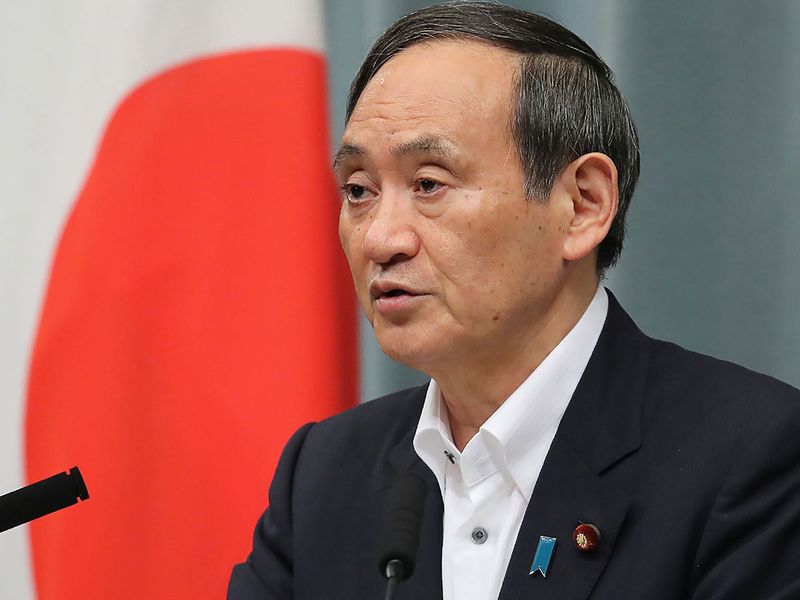
Yoshihide Suga, 71, rose to national prominence as a trusted Abe adviser and was a key proponent of his bid for the premiership after a disastrous first term.
After Abe returned to power in 2012, he appointed Suga chief cabinet secretary, a powerful position that coordinates the efforts of government ministries and the ruling party.
He is also often the face of the government, delivering regular press briefings and famously revealed the name of the new imperial era declared with the ascension of Emperor Naruhito in 2019 - the Reiwa era.
He is a rare self-made lawmaker in a ruling party filled with hereditary politicians and former technocrats, and is the eldest son of a strawberry farmer.
Suga moved to Tokyo after high school and worked odd jobs to put himself through night college.
He was first elected in 1987, as a municipal assembly member in Yokohama, and won a lower house seat in 1996.
Fumio Kishida, favoured successor
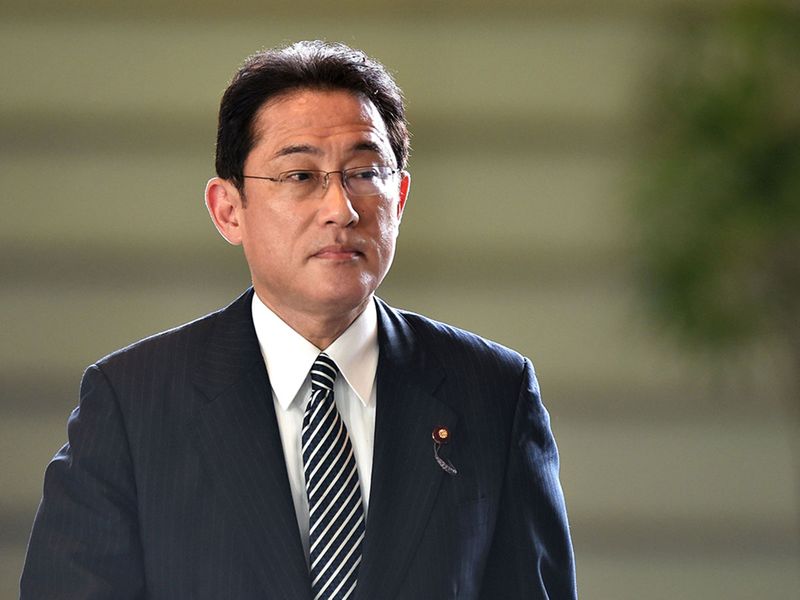
Former foreign minister Fumio Kishida currently serves as the ruling party's policy chief and is often described as Abe's preferred successor, but his soft-spoken, low-key presence and alleged lack of charisma are seen as possible obstacles.
Elected from Hiroshima, Kishida worked to invite then-US president Barack Obama for a historic visit to the city that was devastated by the world's first war-time atomic bomb explosion.
He has been credited with helping cement a deal between Japan and South Korea in 2015 that was meant to end the long-running dispute between the countries over the use of sex slaves during Japan's occupation.
Taro Kono, colourful Twitter user
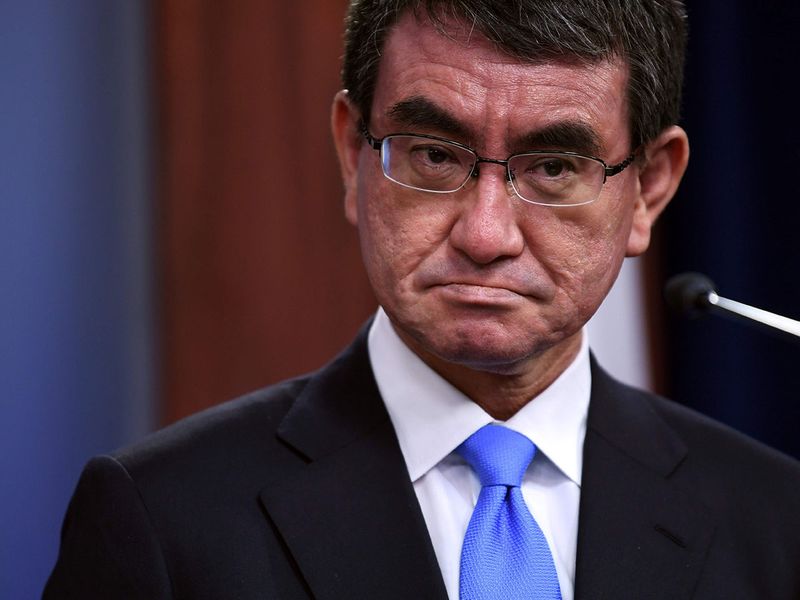
Defence Minister Taro Kono was once considered an ambitious and independent-minded political reformer, but the 57-year-old has toned down his rhetoric in recent years as a key member of Abe's cabinet.
After a stint as a government reform minister, Georgetown-educated Kono served as foreign minister between 2017-2019 before becoming defence minister.
He travelled extensively as Japan's top diplomat, but also oversaw the deterioration of ties with South Korea over unresolved wartime disputes.
In recent years, he has largely avoided discussing his passionate opposition to nuclear power, given the government's official support, and despite his independent image he is seen as close to both Aso and Suga.
Often contrasted with his father, political dove Yohei Kono, he has also set himself apart with his online presence, maintaining personal Twitter accounts in Japanese and English.
from World,Europe,Asia,India,Pakistan,Philipines,Oceania,Americas,Africa Feed https://ift.tt/2YKrmzu
No comments:
Post a Comment